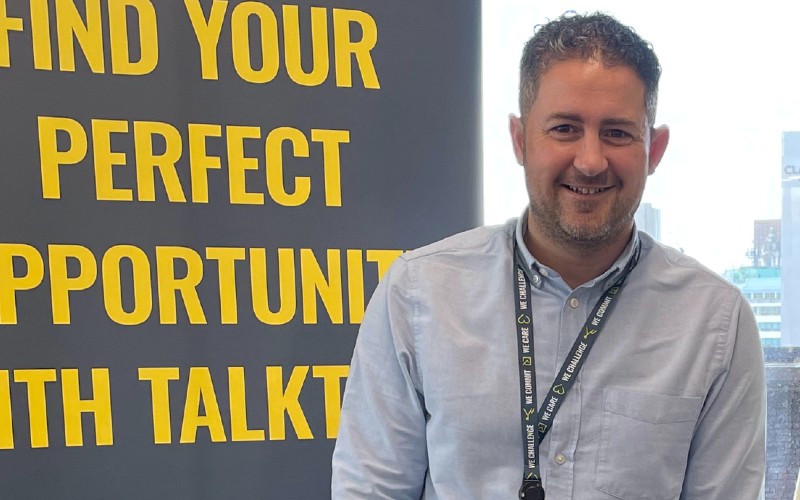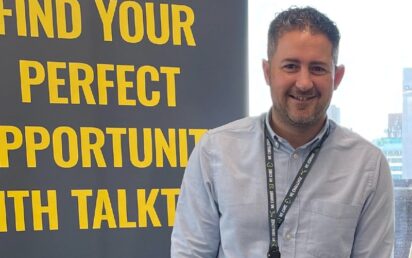Every year Darragh Lee is tasked with hiring around 500 new staff at Salford-headquartered communications group TalkTalk.
The company’s sponsorship of flagship TV programmes in the past like The X Factor have made it a household name but it remains a challenger brand to the likes of BT, Virgin and Sky.
TalkTalk employs around 2,000 people and the company’s head of talent acquisition says the pandemic and the working from home phenomenon has changed the recruitment rulebook.
Lee will be speaking at an exclusive event on June 29th in Manchester – ‘The Great Renegotiation: Is HR director the hardest job in the world?’ – about the extraordinary lengths companies now have to go to in order to hire the best staff.
Recalling his own experience he said: “I joined TalkTalk in November 2019, a few months before the COVID lockdown, and people were typically working three days in the office and two days at home.
“The fact that we were already operating a hybrid, flexible working model, was seen as very appealing to candidates.
“Now everybody is offering hybrid working so we’re having to be a lot more flexible. If we’re struggling to fill roles in and around Greater Manchester, we’re having to be more geographically flexible.
“You have candidates who won’t consider a role unless it’s all remote, even if they live less than 30 minutes from the office.
Employers must raise the bar if they want to win talent race
“We’re not offering full 100% remote working as we feel it’s important that people come into the office for one-to-one meetings and other collaborative sessions on a reasonably regular basis.”
Lee said the competition for talent got significantly hotter about a year ago when people came out of lockdown.
“It started to open up a year ago and it’s been massive ever since,” he said. “Employees felt more confident about moving and changing jobs again. There’s a large demand for talent and it seems like there’s not enough to go round.
“Direct applications have dropped significantly despite our employer brand remaining strong, so we’ve had to be much more proactive in searching and approaching the more passive candidates.
“Another significant challenge is employers don’t want to lose people so we’ve seen some wild counter offers for candidates to stay where they are.”
Software startup with work from anywhere policy set to double headcount
He stressed it wasn’t all doom and gloom but said even an accepted job offer wasn’t a guarantee that somebody would start.
Lee said they recently offered a digital product role to four different candidates over a few month period before getting an acceptance at the fifth time of asking.
“The other four didn’t end up joining because of counter offers,” he said. “We’re all fishing from the same pools. We’re taking people from each other. Ultimately what we need is more grassroots talent in the tech sector coming through.”
In 2018 TalkTalk announced it would be relocating its head office from London to Salford.
“I’ve worked in the recruitment sector for 18 years and it’s the wildest I’ve known it in terms of it being a candidate-led market,” he said. “It’s the biggest percentage increases I’ve seen with offers and counter offers. You can’t take anything for granted.”
Lee will be speaking at the event – The Great Renegotiation: Is HR director the hardest job in the world? – alongside Joanne Brien, partner, KPMG; Dean McGlone, Chief Revenue Officer, Talos360; Ben Audley, Chief Revenue Officer, Summize; Andrew Avanessian, CEO, AppLearn; and Gemma McCall, Chief Executive Officer, Culture Shift.
It takes place at KPMG’s offices at 1 St Peter’s Square, Manchester, and will be hosted by award-winning journalist and executive editor of BusinessCloud, Chris Maguire.


